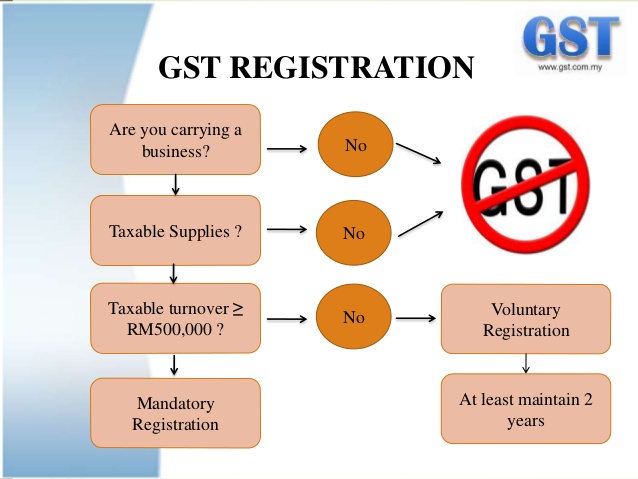Optimizing Tax Efficiency: Professional Tips on Browsing the GST Enrollment Labyrinth for Small Companies
Navigating the elaborate landscape of Product and Provider Tax (GST) enrollment can be a labyrinthine task for little businesses aiming to maximize their tax efficiency. Understanding the eligibility criteria, careful paperwork requirements, calculated timing considerations, and experienced registration process ideas can dramatically influence a company's monetary standing. Compliance with GST guidelines is vital, and adhering to best methods can enhance operations and stop potential risks. In this conversation, we will certainly explore skilled insights and actionable recommendations that can equip little companies to navigate the GST enrollment maze properly and optimize their tax efficiency.
Qualification Standards
Eligibility requirements for Small Service GST Registration incorporate specific criteria that organizations should satisfy to comply with tax guidelines. To certify for GST registration, a service has to have an annual turn over surpassing the limit set by the tax obligation authorities, which varies by country.

Paperwork Demands
The called for paperwork normally consists of evidence of organization enrollment or consolidation, address and identity evidence of the service owner, pictures, financial institution account information, and evidence of the major location of organization. Furthermore, organizations require to provide information of their organization tasks, consisting of the goods or services supplied.
Maintaining all essential documentation organized and easily obtainable can streamline the registration procedure and help businesses conform with the needs effectively. Thorough interest to detail and adherence to the documentation standards are vital for an effective GST enrollment process for small businesses.
Timing Factors To Consider
Considering the crucial paperwork needs have been diligently attended to, the following vital element for local business starting the GST enrollment process is the tactical administration of timing considerations. Timing plays an essential duty in GST enrollment, affecting not just conformity but likewise economic elements of the business. Tiny businesses require to very carefully plan the timing of their GST registration to optimize benefits and lessen possible dangers.

Moreover, services ought to straighten the timing of their GST registration with their operational preparedness. Adequate prep work, such as upgrading audit systems and training team, is vital to flawlessly integrate GST needs into everyday operations. By strategically handling timing factors to consider, small organizations can browse the GST registration procedure successfully and maximize their tax obligation effectiveness.
Registration Process Tips
Efficiently navigating the GST registration procedure requires local business to carry out critical and proactive enrollment procedure ideas. One vital suggestion is to make certain all needed records are easily available prior to beginning the enrollment procedure. This includes organization enrollment files, evidence of address, financial institution statements, and identification evidence of the business owners. Confirming the precision of the information supplied is similarly essential to stop beings rejected or delays.
In addition, recognizing the limits and demands for GST registration based on the details state or area find more info where business runs is important. Some states have various turn over limits that cause required enrollment, so being educated regarding these limits can aid companies prepare in advance.
An additional useful pointer is to take into consideration seeking professional assistance from accountants or tax specialists who concentrate on GST registration. Their experience can improve the process, decrease mistakes, and ensure compliance with all regulations.
Compliance Best Practices
Navigating the GST registration procedure smoothly necessitates not only tactical registration process ideas but likewise thorough adherence to compliance ideal techniques to guarantee continuous governing alignment. Small companies must prioritize conformity to prevent charges and maintain a good standing with tax authorities. One important finest practice is to maintain in-depth and exact records of all purchases. This consists of billings, invoices, and various other monetary documents that may be required for tax audits or compliance checks. In addition, staying informed about any type of updates or changes to GST guidelines is crucial. Local business owners must frequently assess federal government guidelines and seek professional suggestions if needed to ensure they are fulfilling all demands. look here It is also recommended to file GST returns on schedule to prevent late charges and penalties. By including these compliance finest practices into their operations, local business can navigate the complexities of GST registration with self-confidence and effectiveness.
Verdict
Finally, small companies can browse the GST registration labyrinth by guaranteeing they meet eligibility criteria, collect needed documents, think about timing implications, follow enrollment process pointers, and follow compliance best practices. By optimizing tax obligation efficiency via appropriate GST enrollment, organizations can boost their economic management and operations.
Navigating the elaborate landscape of Goods and Provider Tax Obligation (GST) enrollment can be a labyrinthine job for tiny organizations aiming to maximize their tax effectiveness.Qualification demands for Small Company GST Enrollment incorporate specific criteria that organizations must meet to conform with tax obligation regulations. The needed documents commonly consists of evidence of service enrollment or identification, incorporation and address evidence of the business owner, photographs, financial institution account details, and evidence of the major location of company. In addition, services need to offer information of their business tasks, including directory the goods or services supplied.Effectively browsing the GST registration process requires little organizations to apply aggressive and strategic registration process pointers.